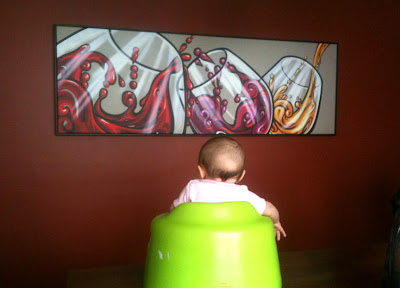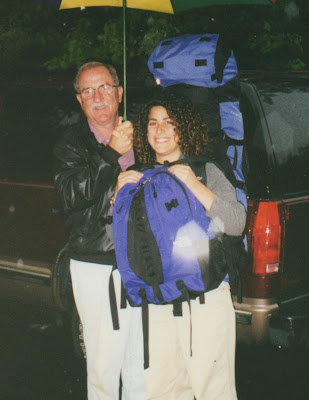Before becoming a mom I really didn’t understand why parents would report the age of their child in weeks. Anything over 4 weeks put my lack of fast-thinking math skills to the test. What is this unit of measure, anyway? Why did I suddenly need a perfect SAT score to have a simple conversation? So to avoid counting on my fingers or pulling out a calculator, I just stopped asking.
Ah, ha! I get it now. New developments unfold weekly and when you have benchmarks of fun stuff like –
at about 16 weeks, your baby may begin giggling – tracking the weeks makes way more sense.
While baby's development may be happening at warp speed, the early days of parenthood move like molasses. Since life has suddenly become a series of short naps, counting months might as well be like counting decades. You're really living in the moment because sleep deprivation keeps you from remembering much else.
As a courtesy to non-parents, I've decided to report Chelsea’s age in months. Surprisingly, I’m not having much success with this time-stamping technique. Even the most unsuspecting people seem to have a handle on tracking infant age in weeks. For example, here’s a conversation I had with a teenage boy behind the counter at Chipotle:
Burrito boy: “How old is your baby?”
Me: “3½ months.”
Burrito boy: “Oh, so like, 14 weeks?”
Me: “Uh...yeah.”
I can assure you, I never knew this stuff when I was swirling yogurt behind the counter at TCBY.
Here's Chelsea at 19 weeks...or 4½ months, whichever you prefer.










